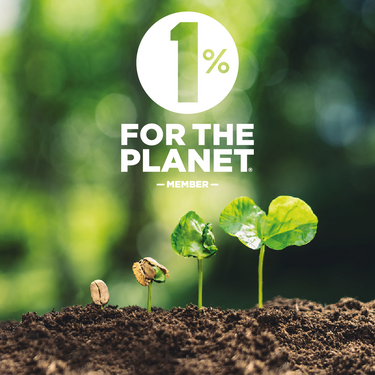FARM – Various smallholders, most with less than 1 hectare
ALTITUDE – 1400 - 1800masl
LOCATION – Eastern slopes of Mount Elgon
PREPARATION - Washed, honey or natural
VARIETY – SL 28 & 34
OWNERS - Smallholders of the Chesyio Cooperative
CERTIFICATION – Falcon & Great Lakes Coffee project
HARVEST – November - February
SHIPMENT – March - May
Coffee plays an important role in the economy of Uganda accounting for 20% - 30% of foreign exchange earnings. The majority is produced by smallholder farmers of which there are around half a million across the country. Farms are generally no larger than 0.5 to 2.5 hectares in size and the industry employs over 3.5 million families through coffee related activities. About 80% of the country’s coffee is robusta which is grown in low altitude areas of up to 1,200 metres above sea level. Robusta is native to the Lake Victoria Crescent, hence its dominance in Uganda. Arabica coffee is grown in the highland areas on the slopes of Mount Elgon in the east and Mount Rwenzori and Mount Muhabura in the south west at heights of 1,500 to 2,300 metres. Coffee is often intercropped with foods such as bananas and beans, and shade trees are widely used across all growing regions.
MOUNT ELGON
CHESIYO WASHING STATION
At Falcon Speciality we are working with a newly organised group who, with our guidance, have established a new approach to their coffee production. The Chesiyo cooperative is comprised of around 200 members who own smallholdings of no more than a hectare in size. The group is headed up by Eric Mwanga, an enthusiastic coffee farmer and community leader who holds a belief that the group could and should produce speciality coffee. Indeed on paper they have it all; rich volcanic soils, good altitude of around1,800 metres above sea level and SL28 and 34 varieties to work with. Historically however, in the absence of technical support, the coffee of Mount Elgon’s eastern slopes has been largely neglected. Pruning has been insufficient and quality control has been lacking resulting in mixed picking, poor processing and a lack of sorting. In recognition of the potential of this region’s coffee, Falcon Commodities, and our Uganda partner Great Lakes Coffee, set up a relationship coffee fund, with the goal of establishing fully traceable and sustainable speciality coffee. The Chesiyo washing station was established by using these funds. Technical support is provided by the Great Lakes Coffee field staff so that local smallholder farmers understand how to prune and nourish their coffee trees and learn how to pick only good, ripe cherry. Falcon Commodities milling expert Jeremy Wakeford also spent time on the mountain during the building of the Chesiyo washing station and assisted in the training of Mr Mwanga and his team.
To further enhance the potential of their coffee, the Chesiyo group decided to produce honey and natural-processed coffee as well as traditional washed. This requires the freshly pulped and picked beans to by-pass the fermentation tanks and go straight onto raised beds where they are sundried, turned and picked over for defects over a period of 10 to 14 days. The result in the cup is greater complexity with extra body and sweetness along with some tasty tropical fruit nuances in the mix. Once dried in parchment to a moisture level of 13.5%, the coffee is transported to Great Lakes Coffee dry mill in Kampala for hulling, grading, and bagging in GrainPro sacks for export. It is great news that Chesyio honey processed coffee was recognised as one of the top five coffees in Uganda cupping competitions and went on to compete in the African Taste of Harvest. It was placed 12th overall, making this the highest ranked Uganda coffee on the African stage.
CUP PROFILE
Acidity: 8 - 8.5 - Piquant acidity
Sweetness: 8 - 8.5 - The sweetness dominates
Character: 9 - 10 - Apricots, peaches, honey floral
Body: 7.5 - 8.5 - Depending on the roast.
Balance: 8 - 8.5 -





